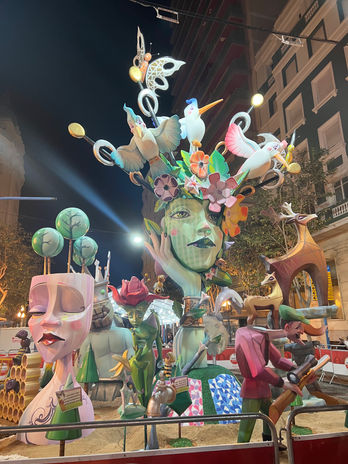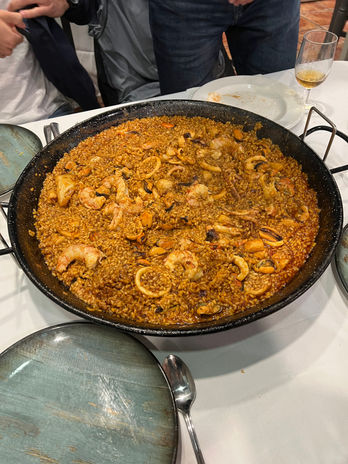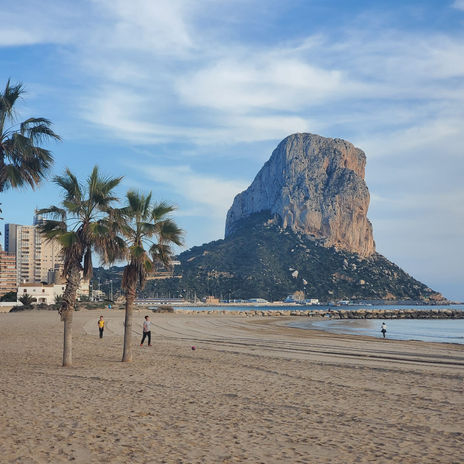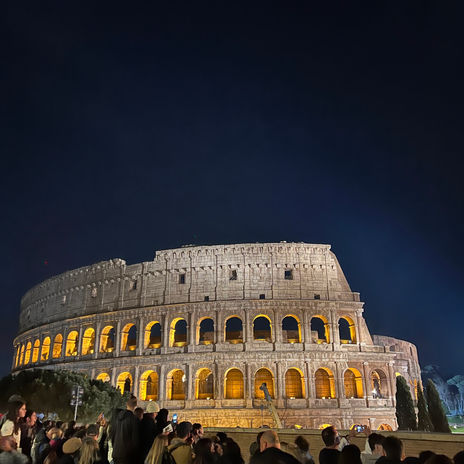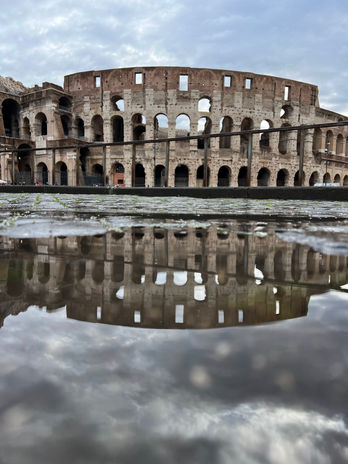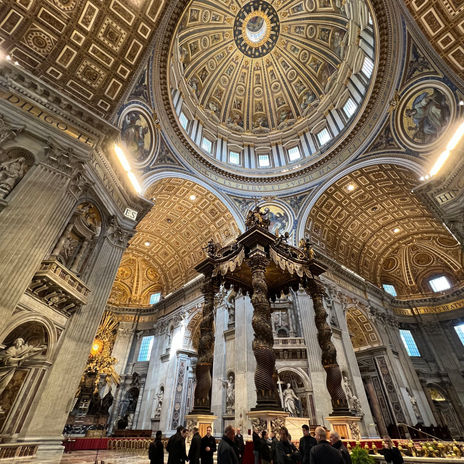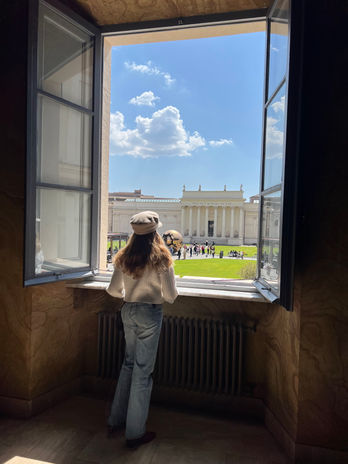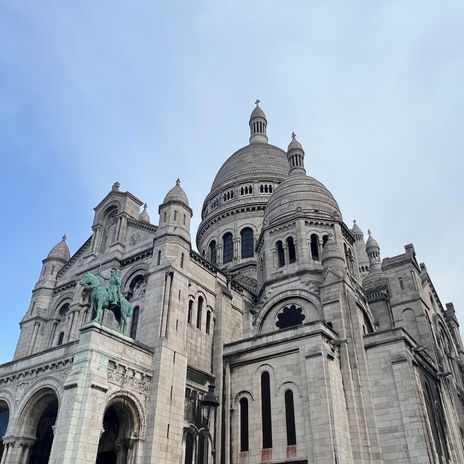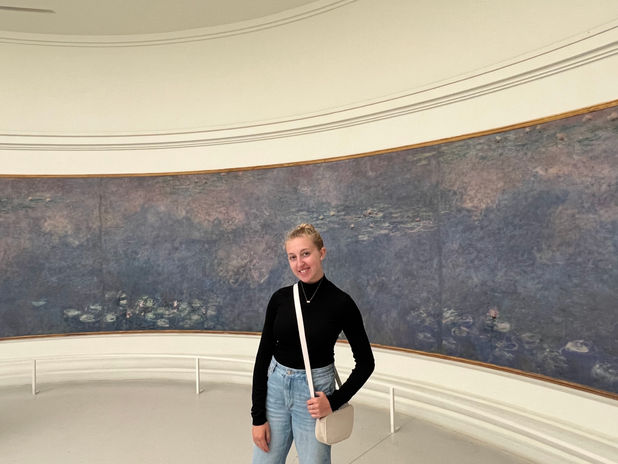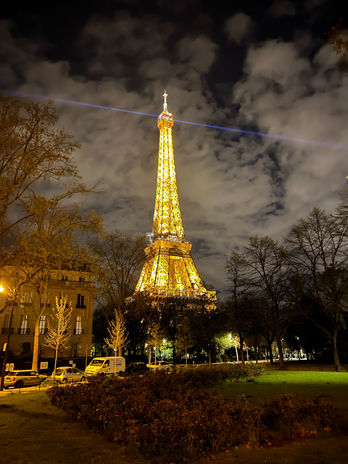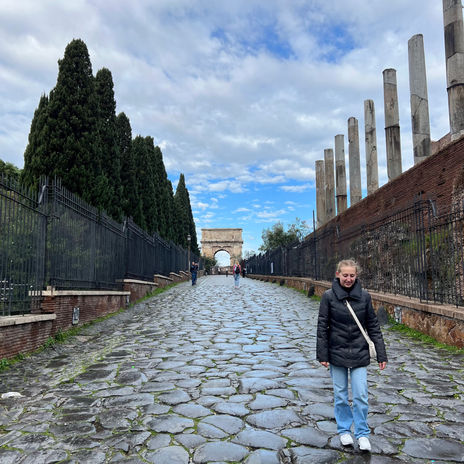DELANEY MENDOZA
B.A. Modern Languages
B.A. Psychology
Study Abroad
Below is a reflective essay on the time I spent studying in Alicante, Spain, as well as some images from my trip.
My Time in Alicante, Spain
In the Spring of 2023, from January to end of June, I traveled abroad to Alicante, a small city in the autonomous Valencian Community of Spain. This city and its region are very unique in that they are part of the autonomous community of Valencia. Because of this, there are two official languages spoken and all public signs are required to be in both Español and Valenciano. Alicante is also special because of its distinct 'old town' and 'new town'. The old town, which was mostly built around the Catedral de Santa Barbara and the castle of the same name, the former of which was erected on top of an old mosque in the 13th century. The old town is clearly structured for a society without motor vehicles, with winding cobblestone roads and historical buildings that have withstood the test of time. I lived in the newer part of the city, so when walking through this sector, I felt as if I was getting a direct view into the way life might have been in the past for this beautiful city.
The ability to experience the unique gastronomic culture of Alicante was one of my favorite parts about my time abroad. As a Mediterranean city, the cultural dishes included fresh bread and a lot of different fishes cooked in different ways, such as fried sardines and prawns. I was shocked to learn that these small fish and crustaceans are fried and eaten whole, and while I was not a huge fan of this at first, I tried them and eventually even began to enjoy them! Another food that was quite different for me was the prevalence that goat meat has in the culture. At least once a week, I was served this either roasted or stewed by the campus dining hall at the University of Alicante. My favorite dish from my time in Alicante was Arroz, which is very similar to Paella, but from the region of Valencia.
My main goal for my study abroad experience may be quite obvious as it was to improve my ability to speak the language that I had been studying for three years, and while I did achieve that, I also was able to gain many more invaluable things from my experience. I took a Spanish language class while abroad, which was helpful in improving on the fundamentals of the language, however, I was more able to fully advance in my language abilities through spending time with my classmates and friends outside of class. I had several friends who were fluent in both their native language of Castilian Spanish, but also in English, so it was very nice to be able to practice with them and have them be able to understand a phrase in english if I could not think of it in Spanish. In addition, I had friends from other nations, such as Italy and Portugal, for whom our only common tongue was Spanish, so the pressure to communicate in a language that was not our native one was a little bit higher. Not only were these individuals extremely helpful in advancing my ability to speak, but my daily interactions with store clerks and wait staff also allowed me to enhance my level of proficiency. I remember how much my confidence grew over the first few weeks of being in Spain, and then continued to rise as I became more comfortable having conversations - the language just started to flow naturally!
One of the main cultural differences I noticed between this area of Spain and the US, is that there is a siesta period which affects the availability of stores and restaurants being open. This is because one of the main things that is valued in Spain is the importance of rest for workers during the day, which is much different than in the US, where we are constantly working long shifts all the time. Due to this, almost every supermarket, clothing store, and most restaurants were closed all day on Sundays. Additionally, many of the restaurants in Alicante were closed from 2:30-8:00pm throughout the week because workers use this time to go home take a break and eat, and would not return until 8:30pm at night. Because I did not live with a homestay family, sometimes this proved difficult, as in the US I am used to being able to run to the store at almost any time to grab the things I need. Not only does the siesta period during the week offer a break for employees, but originally in Spanish culture, it was used as a period in which everyone would nap. As I became more accustomed to the different meal times and differences in the daily schedules of Spaniards, I realized just how needed this midday rest truly was. Some days, I had a class at eight in the morning until two in the afternoon, and by the time I finished and ate lunch I was quite tired. However, dinner time would not be for another six or seven hours, usually followed by spending time with friends, so a small catch up on sleep was really crucial to maintaining the energy I needed to be able to have this schedule.
Something else that was quite interesting to me comes as a result of Alicante being a prime tourism location for northern europeans in the summer time. When I first moved to town in January, shop keepers and waiters would speak to me in Spanish, despite the fact that I do not necessarily look 'Spanish'. This was a really great way for me to be immersed in the language and culture and really made me feel welcome in my new temporary home. Unfortunately, when tourist season arrived in early April, the same waiters and shop keepers that I had been interacting with for months started to speak to me in English right off the bat, for reasons I can only contribute to my light complexion. While this was a little disappointing to me, it was a good opportunity to show me just how important tourism is to the town of Alicante, and how many residents learn English as a result of this.
Overall, every opportunity that I had, whether that be through classes that I took within the university, or through activities within the city, was able to enrich my academic and learning experience. I was able to improve in my Spanish and learn more about new languages and the culture in which I had now become a part of. My time in Alicante was truly special, and I would most definitely go back if I had the chance!


